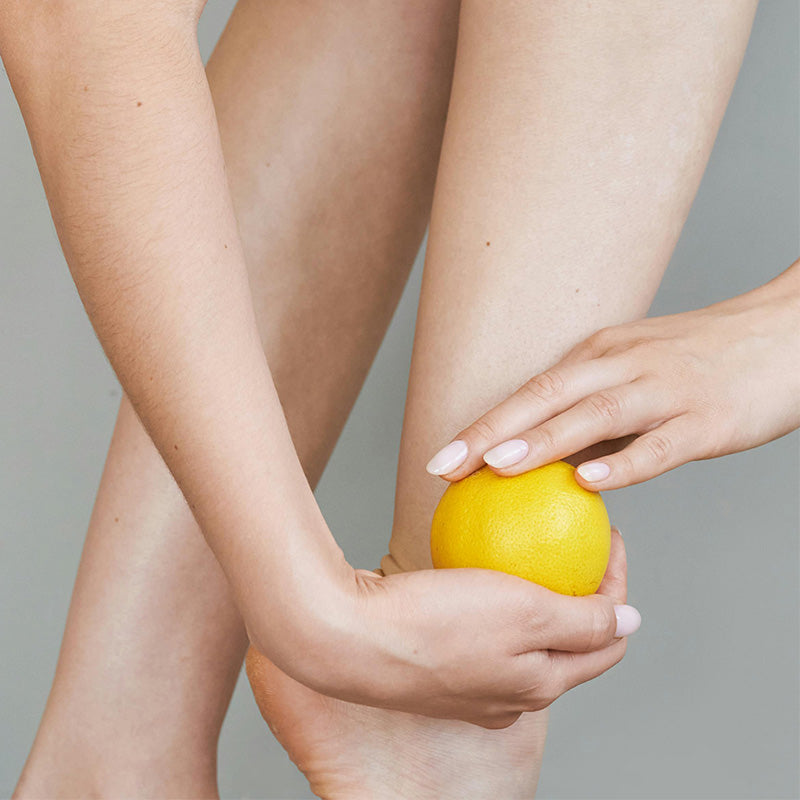
Healthy skin through diet
Nutrition plays an important role in maintaining healthy skin. Macronutrients (carbohydrates, proteins and lipids) and micronutrients (vitamins and minerals) help maintain skin structure and appearance. In this respect, various actions taken on a daily basis contribute to giving you a radiant appearance.
Lifestyle habits, particularly diet, but also your skincare routine, can help make your skin healthier and more radiant. In this article, we'll give you all our tips for healthy skin through diet.
The skin's general nutritional needs
Before getting to the heart of the matter, let's take a look at the needs of our skin and the role of nutrients on it. While we often talk about the relevance of vitamins and minerals to the skin, did you know that macronutrients play a key role in balancing our epidermis? Here are a few points to consider:
- Glucose is the main source of energy for skin cells.
- Amino acids (a portion of proteins), carbohydrates and phospholipids are involved in the production of lipids in the outer layer of the epidermis, such as sterols and ceramides. Ceramides are essential for maintaining well-moisturized skin!
- Vitamins and minerals are nutrients that support the skin's structural components.
- Antioxidants are important for the skin, which is constantly exposed to various oxidants, such as ultraviolet (UV) rays.
Minerals and skin
When it comes to minerals, meeting the Recommended Dietary Allowance (RDA) is important for the development and maintenance of healthy skin, but there is little evidence to support oral supplementation. However, research suggests that oral administration of L-selenomethionine, a selenium-containing amino acid, may protect the skin from UV damage.
Flavonoids and the skin
Flavonoids are antioxidant compounds naturally present in plants. Research on flavonoids in the field of skin health focuses mainly on the photoprotective effects of polyphenols, catechins and genistein, the latter having demonstrated anti-aging properties, mainly in relation to damage caused by sun exposure. Polyphenols act against the propagation of free radicals generated by exposure to various factors such as stress, pollution, sun, cold or various external aggressions.
On the menu: green tea, cocoa, berries, grapes, wine and green vegetables.
Vitamins and the skin
Vitamin C and vitamin E both act as antioxidants in the skin. Vitamin C also contributes to collagen synthesis and is essential for good wound healing. Studies suggest that oral supplementation using vitamin C and vitamin E in combination may help prevent damage caused by UV rays. Other studies also observe that higher dietary intakes of vitamin C are linked to improved skin appearance, with a reduction in wrinkles. These effects have been demonstrated both in conjunction with oral intake of vitamins via the diet, and with topical exposure via aesthetic products, making the combination between the two optimal.
So, by combining a balanced diet with vitamin-rich skin care products like those in our natural cosmetics range, you can help maintain healthy, hydrated skin all year round. To find our vitamin C and vitamin E-rich products, click here.
For a vitamin-packed menu: bell peppers, citrus fruits, broccoli, strawberries, nuts, seeds, cold-pressed olive or canola oils, etc.
Essential fatty acids and the skin
Thanks to their fluid structure, fatty acids contribute to skin suppleness, hydration and protection. What's more, studies indicate that dietary supplementation with certain omega-3s can reduce UV damage, signs of skin aging and inflammatory skin responses. Other studies also observe that dietary supplementation with certain omega-6s can alleviate symptoms associated with skin sensitivity and inflammatory skin disorders. Finally, studies report that higher dietary intakes of essential fatty acids are associated with younger-looking skin and better photoprotection.
On the menu: fatty fish (mackerel, salmon, trout, sardines), flax or chia seeds, cold-pressed canola oil, camelina oil, etc.
In conclusion, it's interesting to note that these effects have been demonstrated both in conjunction with oral intake of vitamins via the diet, and with topical exposure via beauty products, making the combination between the two optimal. Combining a quality diet with nutritious skin care products will enable you to glow with healthy, radiant skin!
That's why we offer you natural, fruit-based cosmetics. Discover our mandarin range, which includes a body lotion and an exfoliating gel. For even fruitier scents, let yourself be seduced by our pomegranate-scented lip care products.





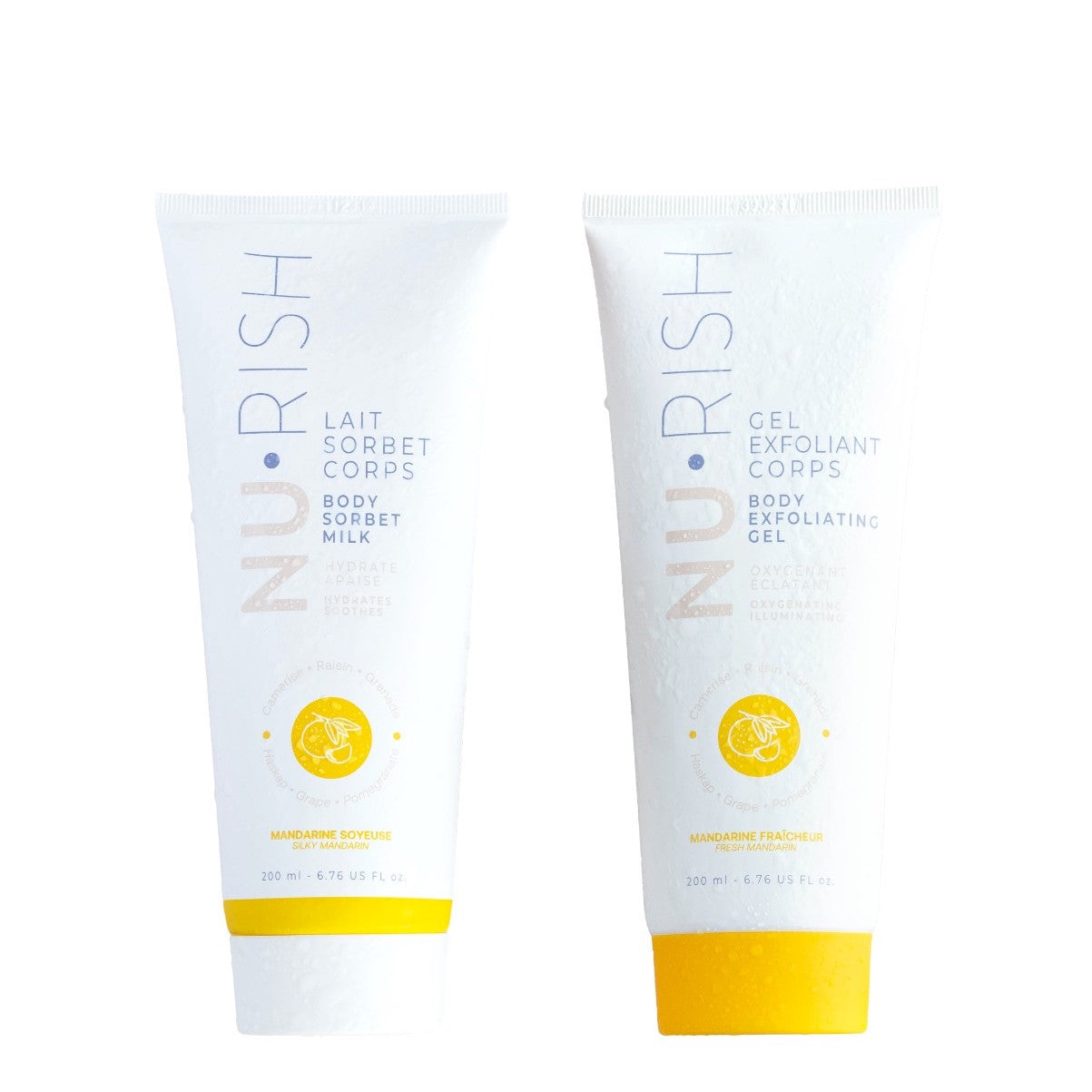

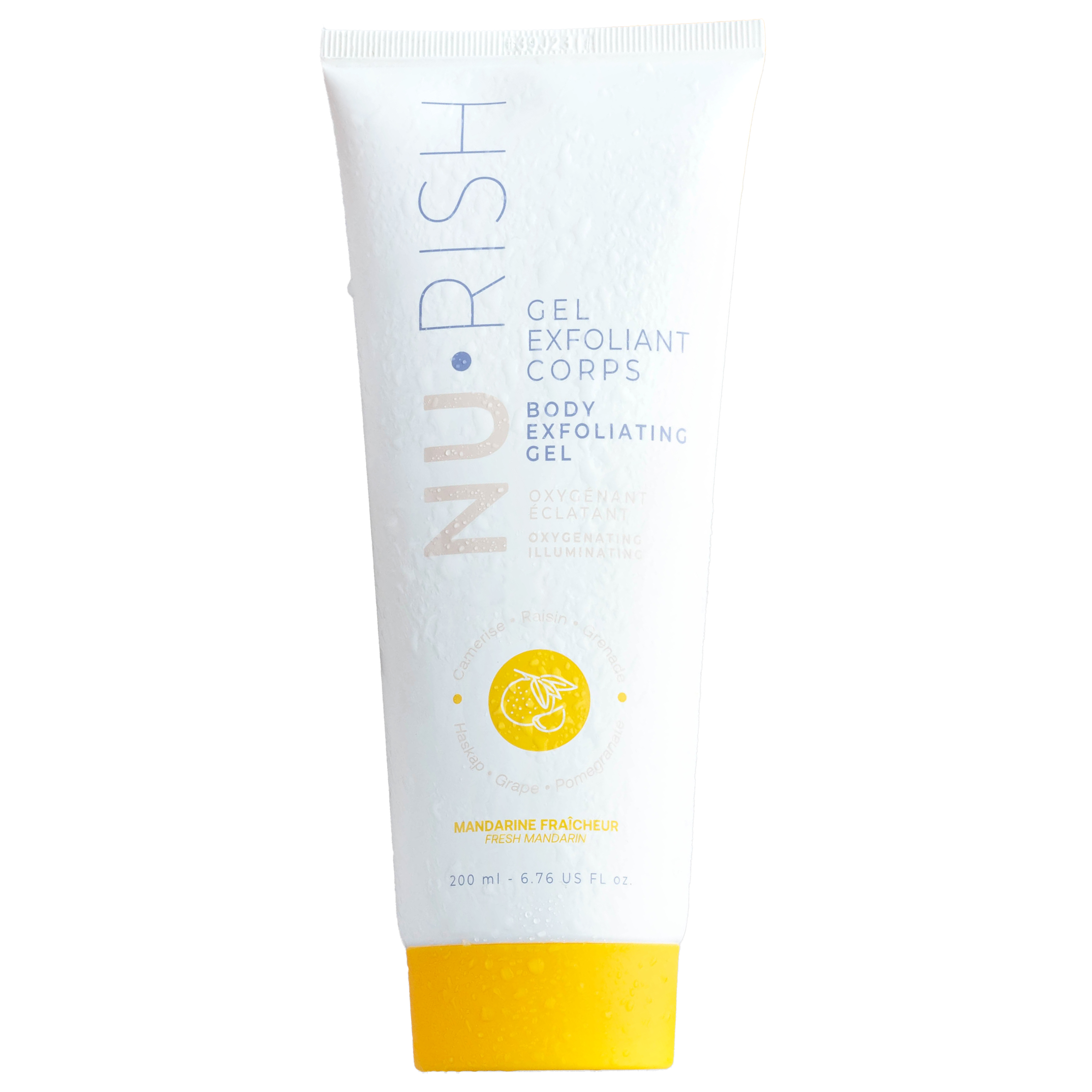

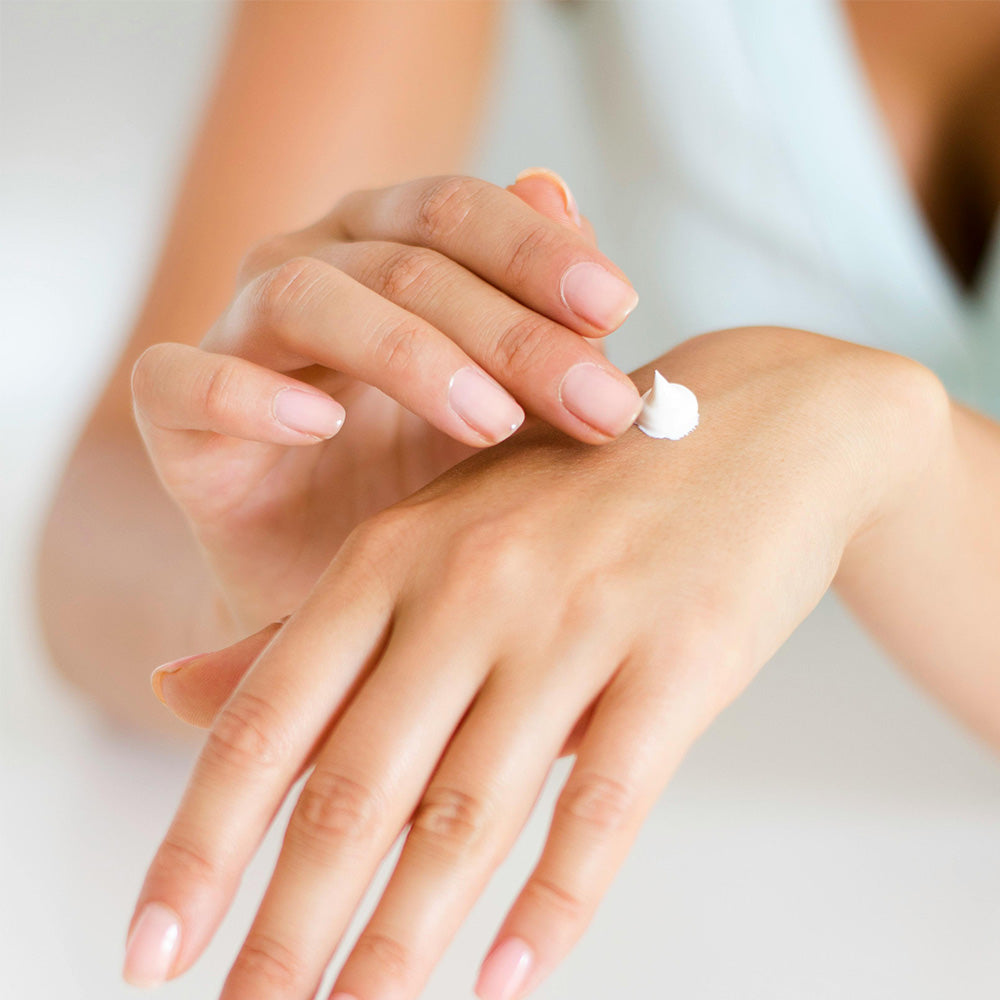
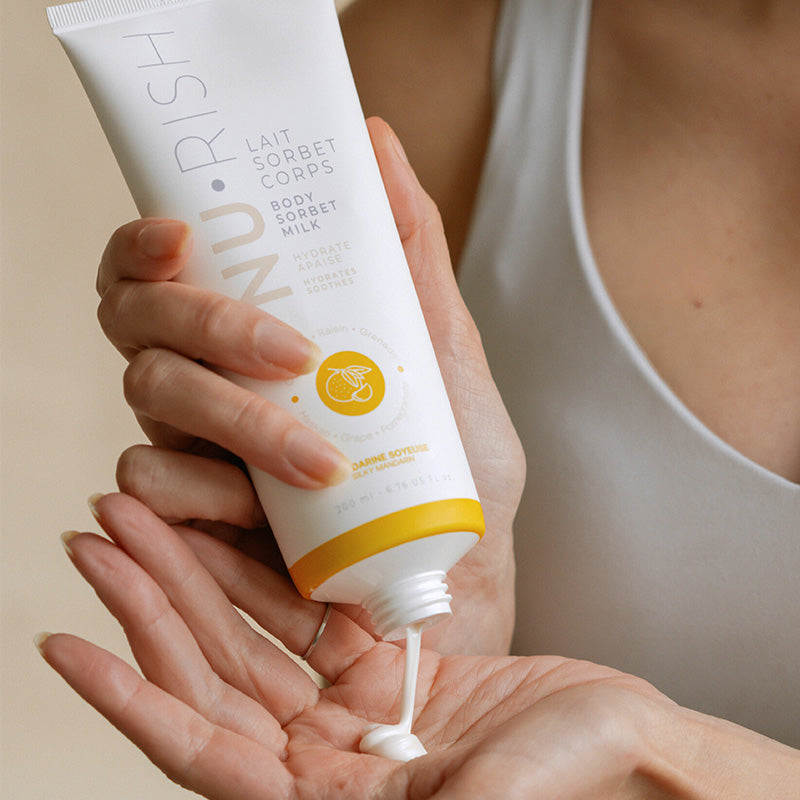
Leave a comment
This site is protected by hCaptcha and the hCaptcha Privacy Policy and Terms of Service apply.